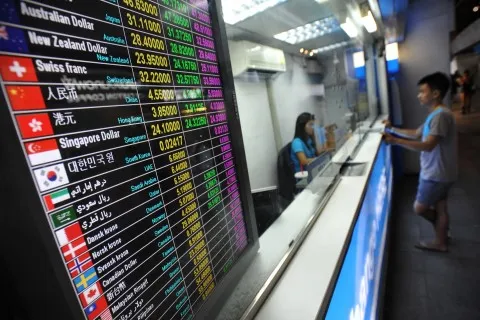
Philippine banks predicted to raise more capital in the next 2 years
To keep up with strong loan growth.
Philippine banks are likely to raise more capital in the next one to two years to keep pace with strong loan growth and meet new requirements for increased capital at large banks.
According to a release from Fitch Ratings, it expects loan growth to remain relatively high in the Philippines as favourable economic conditions continue into 2015.
Data released by the Philippine central bank show that universal and commercial bank loans continue to grow rapidly, rising 17.3% year-on-year in January after expanding by 19.9% in 2014.
Many Philippine banks are unable to generate sufficient capital through profits alone to support loan growth in the high teens.
A number of the large banks have therefore raised capital through the financial markets over the past few years, to back robust asset growth as well as to prepare for more demanding Basel III capital rules, which took effect in 2014.
Here's more from Fitch Ratings:
Bank of the Philippine Islands (BPI; BBB-/Stable) and Philippine National Bank (PNB; Not Rated) both raised equity in early 2014, and Metropolitan Bank & Trust Company (Metrobank; BBB-/Stable) is set to issue stock in the coming months.
2014 was also an active year for the issuance of Basel III-compliant subordinated debt, which qualifies as Tier 2 capital under the new regulatory regime.
The introduction of a new framework for domestic systemically important banks (DSIBs) will add to bank capital needs.
The new framework requires the largest banks to hold core equity Tier 1 (CET1) capital of at least 11.0% of risk-weighted assets by January 2019. The large Philippine banks already have CET1 capital adequacy ratios (CAR) above this level, but they may be eroded by high loan growth over time.
Overall, Philippine banks' current capital positions provide sensible buffers against potential credit losses, with CET1 CAR comfortably above the central bank's present minimum of 8.5%. Those capital positions will have to be reinforced from time to time, however, as loans continue to increase strongly.
Loan growth in the Philippines has been in the mid- to high-teens for the last four years, and bank private sector credit/GDP has risen to 38.3% at end-2014 from 29.6% at end-2010, according to Fitch's "Macro-Prudential Risk Monitor - March 2015" report.
This is not unreasonable for the country's present stage of economic growth as absolute credit penetration still remains low. However, the rapid loan growth raises the risk of asset bubbles and unproductive lending, which may lead to asset quality pressures in due course.






![Lorem Ipsum [ABF 1]](https://cmg-qa.s3.ap-southeast-1.amazonaws.com/s3fs-public/styles/exclusive_featured_article/public/2025-03/a_hand_pointing_to_a_futuristic_technology_5b87c9d0e3_1.png.webp?itok=2w0y1WhS)


![Cross Domain [Manu + SBR + ABF + ABR + FMCG + HBR + ]](https://cmg-qa.s3.ap-southeast-1.amazonaws.com/s3fs-public/styles/exclusive_featured_article/public/2025-01/earth-3537401_1920_4.jpg.webp?itok=WaRpTJwE)








 Advertise
Advertise

